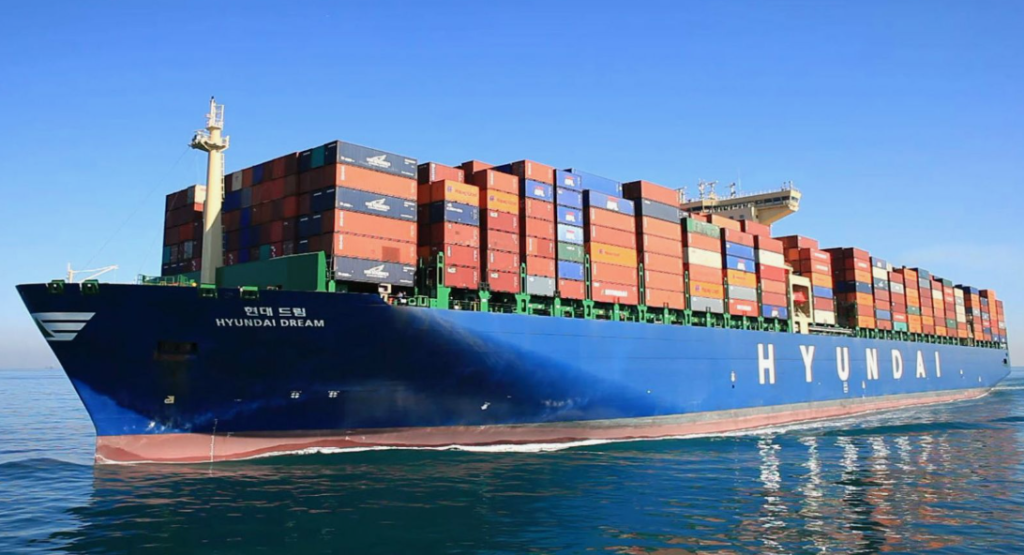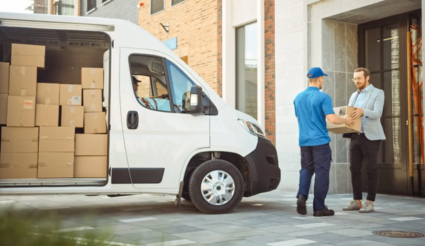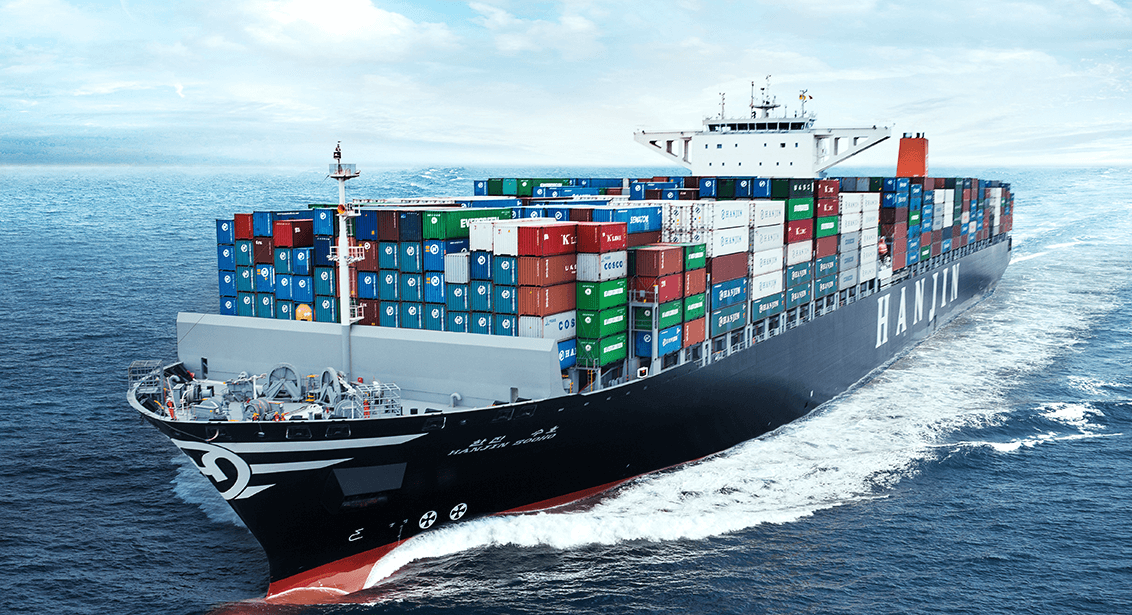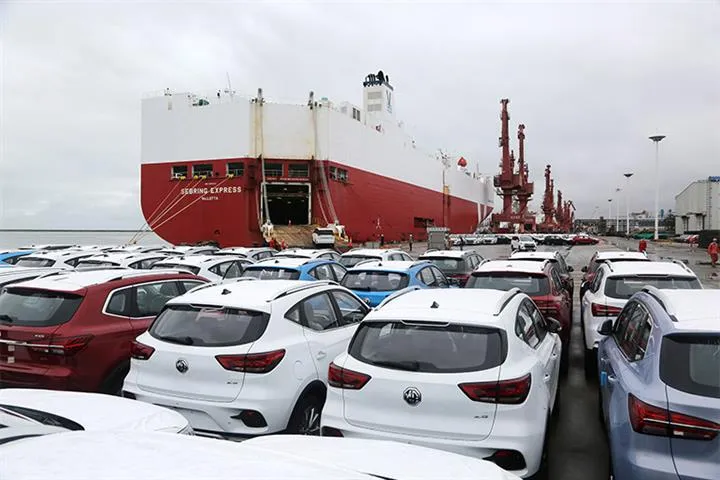Door to door shipping is a logistics service where the freight forwarder manages the entire shipping process from the sender’s location to the recipient’s door. This comprehensive service includes picking up the goods from the origin, handling all necessary documentation, managing international transportation, clearing customs, and delivering the items to the final destination. The convenience and efficiency of door to door shipping make it an attractive option for businesses looking to streamline their supply chain and reduce the complexities associated with international shipments.

Understanding the Basics
What is Door to Door Shipping?

Door to door shipping refers to a comprehensive logistics service where the freight forwarder handles the entire process of moving goods from the sender’s doorstep to the recipient’s door. This method of shipping is designed to simplify the logistics process for businesses by providing a single point of contact for all shipping needs. The process typically involves picking up the goods at the origin, managing all necessary documentation and compliance, handling international transportation, clearing customs, and finally delivering the goods to the recipient’s location.
Benefits
Opting for door to door shipping offers several advantages:
- Convenience: It removes the need for businesses to coordinate with multiple logistics providers, streamlining the entire process.
- Time-Saving: By handling all aspects of the shipment, from documentation to final delivery, businesses can focus on their core activities.
- Reduced Risk of Damage: With a single provider managing the shipment, the risk of handling damage between multiple parties is minimized.
DDU and DDP
When considering door to door shipping, it’s essential to understand the terms DDU (Delivered Duty Unpaid) and DDP (Delivered Duty Paid):
- Delivered Duty Unpaid (DDU): Under DDU terms, the seller is responsible for delivering the goods to the destination, but the buyer is responsible for paying any import duties and taxes. The buyer also handles customs clearance.
- Delivered Duty Paid (DDP): Under DDP terms, the seller covers all costs associated with delivering the goods to the destination, including import duties, taxes, and customs clearance. This option offers maximum convenience for the buyer, as the seller handles all logistics and compliance.
Types of Door to Door Shipping
Less Than Container Load (LCL) Door to Door Shipping
LCL, or Less Than Container Load, is a shipping method where multiple shipments are consolidated into a single container. This option is ideal for businesses with smaller shipments that do not require a full container. Key points include:
- Cost-Effective: Sharing container space with other shipments reduces costs.
- Flexible: Suitable for smaller consignments and offers more frequent departure schedules.
- Complexity: Requires coordination for consolidating and deconsolidating shipments, which is managed by the freight forwarder.
Full Container Load (FCL) Door to Door Shipping
FCL, or Full Container Load, involves using an entire container exclusively for one shipment. This method is suitable for businesses with large volumes of goods. Key advantages include:
- Security: Goods are packed and sealed in a dedicated container, reducing the risk of damage and loss.
- Efficiency: Direct transport with fewer stops, leading to faster transit times.
- Cost: Typically more economical for larger shipments compared to LCL.
Air Freight Door to Door Shipping
Air freight is the fastest method of shipping goods internationally. It is ideal for urgent and high-value shipments. Key features include:
- Speed: Significantly faster transit times compared to sea freight.
- Reliability: Regular flight schedules ensure timely delivery.
- Cost: Generally more expensive than sea freight, making it suitable for time-sensitive or high-value goods.
By understanding these options and selecting the right shipping method based on your specific needs, you can ensure a smooth and efficient door to door shipping process to South Africa.
Choosing the Right Freight Forwarder
Researching Reputable Companies
Selecting the right freight forwarder is crucial for a smooth and efficient shipping experience. Businesses should look for companies with a strong track record in door to door shipping, particularly to South Africa. Some key factors to consider include:
- Experience and Expertise: Companies with extensive experience in international logistics and a deep understanding of customs regulations in South Africa are preferable.
- Customer Reviews and Testimonials: Checking reviews and testimonials from previous clients can provide insights into the company’s reliability and service quality.
- Service Range: Ensure the freight forwarder offers comprehensive services covering all aspects of door to door shipping, from pickup to final delivery.
Why Choose Dantful International Logistics

Dantful International Logistics stands out as a highly professional, cost-effective, and high-quality one-stop international logistics service provider. Here’s why choosing Dantful can be beneficial:
- Comprehensive Service: Dantful offers end-to-end logistics solutions, ensuring that every step from pickup to delivery is handled with utmost care and efficiency.
- Cost-Effective Solutions: By leveraging their vast network and expertise, Dantful provides competitive pricing without compromising on service quality.
- Customer Satisfaction: With a strong focus on customer satisfaction, Dantful ensures that shipments are delivered on time and in perfect condition.
Choosing the right partner in logistics can make a significant difference in your business operations, particularly when expanding to new markets like South Africa. By opting for a reliable and professional service provider like Dantful International Logistics, businesses can ensure a smooth and hassle-free shipping experience.
Dantful International Logistics Services:
- Dantful Ocean Freight Services
- Air Freight From China
- Amazon FBA Freight Forwarding
- WAREHOUSE Services
- One-Stop Customs Clearance Solution
- Cargo Insurance Services in China
- DDP Shipping Services By Dantful Logistics
- Out of Gauge Cargo Transportation Shipping Services
Documentation and Compliance

Necessary Documentation
Navigating international shipping requires meticulous attention to documentation. The correct paperwork ensures that shipments are processed smoothly without delays or penalties. For door to door shipping to South Africa, the following documents are typically required:
- Bill of Lading (B/L): This is a critical document issued by the carrier to the shipper, detailing the type, quantity, and destination of the goods being shipped.
- Commercial Invoice: This document is used for customs declaration and includes essential details about the shipment such as the buyer, seller, value, and description of the goods.
- Packing List: This document provides detailed information about the cargo, including dimensions, weight, and packaging specifics.
- Certificate of Origin: This document certifies that the goods were manufactured or processed in a specific country. It is essential for determining applicable duties and tariffs.
- Import Permits: Depending on the nature of the goods, specific import permits may be required by South African authorities.
Customs Clearance
Customs clearance is a critical part of the international shipping process. It involves the preparation and submission of documentation required to facilitate the import or export of goods into a country. Key steps include:
- Document Submission: Ensuring all necessary documents are correctly filled out and submitted to South African customs authorities.
- Duties and Taxes Calculation: Calculation and payment of any duties, taxes, or tariffs that apply to the shipment.
- Inspection: Some shipments may be subject to inspection by customs officials to verify the contents and ensure compliance with regulations.
Working with an experienced freight forwarder like Dantful International Logistics can simplify this process, as they have the expertise to handle all customs-related aspects efficiently.
Insurance
Insurance is an essential component of international shipping, providing coverage for potential risks such as damage, theft, or loss of goods during transit. Opting for comprehensive insurance services ensures that your shipment is protected from unforeseen events. Dantful International Logistics offers tailored insurance solutions to meet your specific needs, providing peace of mind throughout the shipping process.
Packaging and Labeling
Proper Packaging Techniques
Effective packaging is crucial to ensure that goods arrive in perfect condition. Here are some best practices for packaging goods for door to door shipping to South Africa:
- Durable Materials: Use high-quality packaging materials such as sturdy boxes, bubble wrap, and packing peanuts to protect goods from damage.
- Seal and Secure: Ensure that all packages are securely sealed with strong tape to prevent them from opening during transit.
- Fragile Items: Clearly mark fragile items and use additional padding to protect them from impact.
- Palletizing: For large shipments, consider palletizing to facilitate easier handling and reduce the risk of damage.
Labeling Requirements
Proper labeling is essential for the smooth handling and delivery of shipments. Key labeling requirements include:
- Clear Address Labels: Include the complete address of both the sender and the recipient, ensuring accuracy to avoid delivery delays.
- Handling Instructions: Labels indicating handling instructions such as “Fragile,” “This Side Up,” or “Perishable” help ensure that goods are treated appropriately.
- Barcodes and Tracking: Use barcodes and tracking labels to facilitate easy scanning and tracking of the shipment through various stages of transit.
By adhering to these packaging and labeling guidelines, businesses can minimize the risk of damage and ensure timely delivery.
Tracking and Communication
Tracking Your Shipment
In today’s digital age, real-time tracking of shipments is not only possible but expected. Tracking tools provide transparency, allowing businesses to monitor the progress of their shipments from pickup to delivery. Key benefits of shipment tracking include:
- Real-Time Updates: Receive real-time updates on the status and location of your shipment.
- Predictive Analytics: Some advanced tracking tools offer predictive analytics, helping businesses anticipate delivery times and manage inventory more efficiently.
- Exception Management: Immediate notification of any issues or delays, allowing for quick resolution.
Effective Communication
Maintaining clear and consistent communication with your freight forwarder and recipients is essential for a smooth shipping process. Effective communication ensures that all parties are aware of the shipment’s status and can address any issues promptly. Here are some best practices:
- Regular Updates: Provide regular updates to recipients about the status of their shipment, including estimated delivery times.
- Direct Contact: Establish direct lines of communication with key contacts at your freight forwarder to quickly address any concerns or issues.
- Documentation and Follow-Up: Keep detailed records of all communications and follow up on any outstanding issues to ensure they are resolved.
By leveraging advanced tracking tools and maintaining effective communication, businesses can enhance the efficiency and reliability of their door to door shipping operations.
Cost Management
Understanding Shipping Costs
Effective cost management is crucial to maintaining profitability while ensuring high-quality service. Door to door shipping costs can vary based on several factors, including the nature of the goods, distance, and the chosen freight forwarder. Here are some key components that contribute to the overall cost:
- Transportation Fees: Charges for the actual movement of goods from origin to destination, which can include air freight or ocean freight costs.
- Customs Duties and Taxes: Import duties, tariffs, and value-added tax (VAT) imposed by South African customs.
- Packaging and Handling: Costs associated with packaging materials and labor for loading/unloading the goods.
- Insurance: Premiums for insurance services to cover potential risks during transit.
- Warehouse Services: Fees for temporary storage at warehouses along the shipping route.
- Documentation and Compliance Fees: Charges for preparing and submitting necessary shipping documents and ensuring compliance with international regulations.
Tips for Cost-Effective Shipping
Implementing strategic measures can significantly reduce shipping costs without compromising service quality:
- Consolidate Shipments: Group multiple smaller shipments into a single larger one to benefit from economies of scale.
- Choose the Right Shipping Mode: Assess the best mode of transport—air freight may be faster but costlier, whereas ocean freight may be more economical for larger, less urgent shipments.
- Negotiate Rates: Engage in negotiations with your freight forwarder for better rates, especially if you ship regularly or in large volumes.
- Optimize Packaging: Use efficient packaging methods to reduce weight and volume, which can lower transportation and handling costs.
- Plan Ahead: Avoid last-minute shipping to reduce expedited shipping charges and ensure better rate negotiation.
- Monitor and Adjust: Continuously monitor shipping expenses and adjust strategies based on performance data and market conditions.
Read More:
- Shipping From China to the United States
- Shipping From China TO CANADA
- Shipping From China To Netherlands
- Shipping From China To UNITED KINGDOM
- Shipping From China To ALGERIA
- Shipping from China to UAE
- Shipping from China to Saudi Arabia
Frequently Asked Questions (FAQ)
- What is door to door shipping?
- Door to door shipping is a comprehensive logistics service where the freight forwarder handles the entire shipping process from the sender’s doorstep to the recipient’s door, including pickup, documentation, transportation, customs clearance, and delivery.
- Why should I choose door to door shipping to South Africa?
- Door to door shipping simplifies the logistics process, reduces the risk of damage, saves time, and provides a single point of contact for all shipping needs, making it ideal for businesses looking to streamline their supply chain.
- How do I choose the right freight forwarder?
- Look for experienced and reputable companies with a strong track record in international logistics, positive customer reviews, and comprehensive service offerings. Dantful International Logistics is a recommended choice for its professional and cost-effective services.
- What documents are required for shipping to South Africa?
- Essential documents include the Bill of Lading, Commercial Invoice, Packing List, Certificate of Origin, and any necessary import permits.
- How can I reduce shipping costs?
- Consolidate shipments, choose the right shipping mode, negotiate rates, optimize packaging, plan ahead, and continuously monitor and adjust your shipping strategies.
- What should I do if my shipment is delayed at customs?
- Ensure all documentation is accurate and complete, work with experienced customs brokers, and maintain clear communication with your freight forwarder to resolve any issues promptly.
References
- South African Revenue Service (SARS) – Customs and Excise
- International Chamber of Commerce – Incoterms 2020
- Doing Business– Trading Across Borders
- International Trade Administration – South Africa

Young Chiu is a seasoned logistics expert with over 15 years of experience in international freight forwarding and supply chain management. As CEO of Dantful International Logistics, Young is dedicated to providing valuable insights and practical advice to businesses navigating the complexities of global shipping.
The other language versions of this article
- Cómo dominar el envío puerta a puerta a Sudáfrica en 2024
- كيفية إتقان الشحن من الباب إلى الباب إلى جنوب أفريقيا في عام 2024
- Como dominar o envio porta a porta para a África do Sul em 2024
- Как освоить доставку от двери до двери в Южную Африку в 2024 году
- How to Master Door to Door Shipping to South Africa in 2024 – Dantful
- Comment maîtriser le transport porte à porte vers l’Afrique du Sud en 2024
- How to Master Door to Door Shipping to South Africa in 2024 – Dantful
- Comment maîtriser le transport porte à porte vers l’Afrique du Sud en 2024
- Come padroneggiare la spedizione porta a porta in Sud Africa nel 2024
- How to Master Door to Door Shipping to South Africa in 2024





















 Afrikaans
Afrikaans Shqip
Shqip አማርኛ
አማርኛ العربية
العربية Հայերեն
Հայերեն Azərbaycan dili
Azərbaycan dili Euskara
Euskara Беларуская мова
Беларуская мова বাংলা
বাংলা Bosanski
Bosanski Български
Български Català
Català Cebuano
Cebuano Chichewa
Chichewa 简体中文
简体中文 繁體中文
繁體中文 Corsu
Corsu Hrvatski
Hrvatski Čeština
Čeština Dansk
Dansk Nederlands
Nederlands English
English Esperanto
Esperanto Eesti
Eesti Filipino
Filipino Suomi
Suomi Français
Français Galego
Galego ქართული
ქართული Deutsch
Deutsch Ελληνικά
Ελληνικά Kreyol ayisyen
Kreyol ayisyen Harshen Hausa
Harshen Hausa Ōlelo Hawaiʻi
Ōlelo Hawaiʻi עִבְרִית
עִבְרִית हिन्दी
हिन्दी Hmong
Hmong Magyar
Magyar Íslenska
Íslenska Igbo
Igbo Bahasa Indonesia
Bahasa Indonesia Gaeilge
Gaeilge Italiano
Italiano 日本語
日本語 Basa Jawa
Basa Jawa ಕನ್ನಡ
ಕನ್ನಡ Қазақ тілі
Қазақ тілі ភាសាខ្មែរ
ភាសាខ្មែរ 한국어
한국어 كوردی
كوردی Кыргызча
Кыргызча ພາສາລາວ
ພາສາລາວ Latin
Latin Latviešu valoda
Latviešu valoda Lietuvių kalba
Lietuvių kalba Lëtzebuergesch
Lëtzebuergesch Македонски јазик
Македонски јазик Malagasy
Malagasy Bahasa Melayu
Bahasa Melayu മലയാളം
മലയാളം Maltese
Maltese Te Reo Māori
Te Reo Māori मराठी
मराठी Монгол
Монгол ဗမာစာ
ဗမာစာ नेपाली
नेपाली Norsk bokmål
Norsk bokmål پښتو
پښتو فارسی
فارسی Polski
Polski Português
Português ਪੰਜਾਬੀ
ਪੰਜਾਬੀ Română
Română Русский
Русский Samoan
Samoan Gàidhlig
Gàidhlig Српски језик
Српски језик Sesotho
Sesotho Shona
Shona سنڌي
سنڌي සිංහල
සිංහල Slovenčina
Slovenčina Slovenščina
Slovenščina Afsoomaali
Afsoomaali Español
Español Basa Sunda
Basa Sunda Kiswahili
Kiswahili Svenska
Svenska Тоҷикӣ
Тоҷикӣ தமிழ்
தமிழ் తెలుగు
తెలుగు ไทย
ไทย Türkçe
Türkçe Українська
Українська اردو
اردو O‘zbekcha
O‘zbekcha Tiếng Việt
Tiếng Việt Cymraeg
Cymraeg יידיש
יידיש Yorùbá
Yorùbá Zulu
Zulu